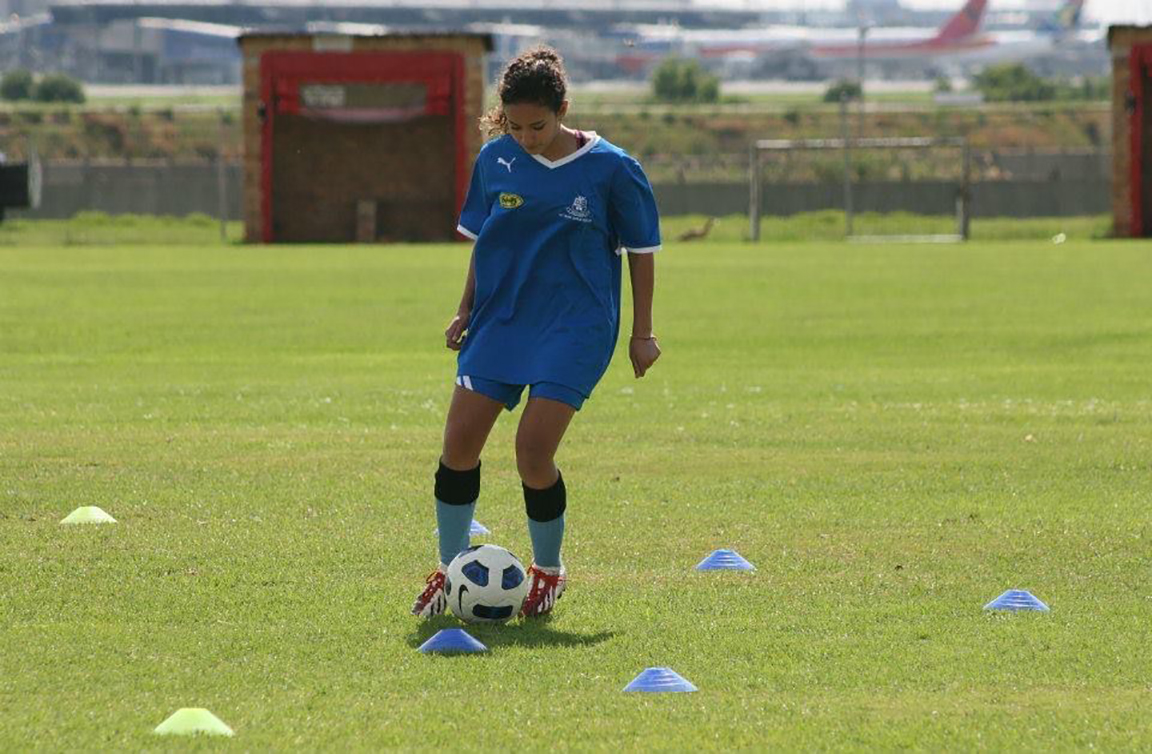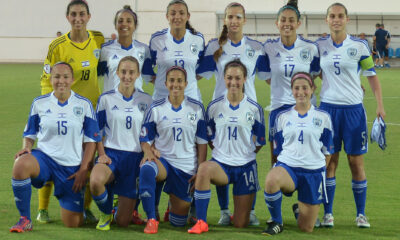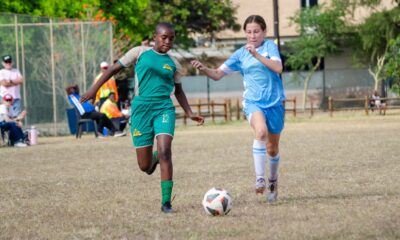
Sport

Banyana Banyana victory inspires female soccer players
The victory of South Africa’s women’s football team, Banyana Banyana, at the Women’s Africa Cup of Nations on 23 July shows that women have a place in soccer and the sporting world, says former soccer player Ariel Snoyman, 25.
“For younger women who love the sport, it’s potentially a great opportunity for them to pursue since, for example, there was a pledge to give the women’s soccer team the same pay and treatment that men receive,” says this University of Cape Town Business Science graduate, who captained King David Linksfield’s soccer team in matric and played for Highlands Park and women’s football club JVW FC, founded by Banyana Banyana captain Janine van Wyk.
“It means a lot for women’s rights,” says Snoyman. “It’s a great feeling to know we’ve accomplished something that people would never have thought possible. It’s motivating for anyone in any career where people are against you.”
Snoyman was inspired to play soccer by her late grandfather, who had been a part of a legendary Jewish family soccer team called The Snoyman 11.
Chloe Valkin, who was selected to play for Bantwana, South Africa women’s national under-17 soccer team, at the age of 14, says, “Banyana Banyana’s win is going to have a positive effect on the country. So many people are now confident in and excited about girls’ football, so hopefully it will draw more investment into the game and bring more girls to play.”
Valkin matriculated from King David Victory Park in 2020, and usually trains with a male club called Warriors FC at Wanderers Club, Johannesburg, but is travelling to America in two weeks to play collegiate soccer there.
“My dad [Jason] was a professional who played in the PSL [Premier Soccer League] here,” says Valkin. “He was passionate about soccer, so ever since I was young, he played with me, and then when I was six, he took me to club soccer. I enjoyed it, so I carried on playing with the boys.”
While growing up in the Cape Town suburb of Salt River, Banyana Banyana coach Desiree Ellis also started her soccer journey playing in boys’ teams. The seven-year-old Hannah Brits is currently doing the same.
She trains at Ballers Soccer School in Cape Town five times a week, four of which are with boys, and plays in a league which doesn’t have many girls. “She holds her own with the boys,” says Brits’s mom, Gina. “She’s the only girl, and is treated like a boy now because she basically only plays with them. They all want her on their team as she’s a strong player.”
Also on the books of Green Point Salesian Football Club, Brits started showing signs of wanting to play ball early on. After seeing one of her triplet sisters playing club soccer, she decided to give it a try, and has since been absolutely obsessed with the game.
“In the beginning, I wasn’t sure if this is the kind of sport I wanted her to do,” says Brits’s mom. “I didn’t know anything about soccer. Now I’m completely invested. I absolutely love it. I don’t miss a match. I go to all their practices. I’m thrilled.”
She explains that for her daughter, Banyana Banyana’s win was huge. “In America, she knows women’s football is a big deal. She always says she’ll be a professional soccer player and she’ll live in America. So, when she found out that Banyana Banyana had won, she said, ‘Can I be a professional soccer player here?’ It brought home to her that it does exist here. She got quite excited at the thought of more girls starting to play soccer, and the fact that she’ll eventually be in an all-girls team.”
Snoyman recalled not getting great big crowds to watch their games. “It was more just like internally, the team created a mini family,” she says. “At school, our team used to be called mishpacha [family]. It made you feel a part of something bigger and a part of the team that really care about you.”
Valkin says sadly, not a lot of young girls play in South Africa. “Many of those who do are the poorest of the poor. Their development doesn’t come from investment really, it comes from them trying to escape the circumstances that they live in. Hopefully that’s going to change.”
She says she has always been one of the only females in the Jewish community to play soccer over a lengthy period. “Some people don’t understand it, some are very impressed, but it’s always been nice for me. It made me unique in many ways.
“Soccer changed my life in the sense that it’s easy for Jewish kids living in South Africa to go to King David and stay in the community, but I played in a boys’ team in which I was the only girl and the only white person. All the boys were from Alexandra township. Our coach would bring them to practice in a kombi every day. It showed me another side of South Africa.”
Leaving for America and saying goodbye to these boys has been hard for Valkin. “They became some of my best friends.”
Alongside getting her degree overseas, Valkin hopes to play professional soccer in America or Europe in the future.
What Valkin likes about the sport is that “there’s running and muscle but also a lot of brains”.
“As a girl playing in the boys’ team, I was smaller than them, I wasn’t as quick, as fast, so I loved the element of actually using your brain and thinking in a physical context. It was my escape,” she says.










